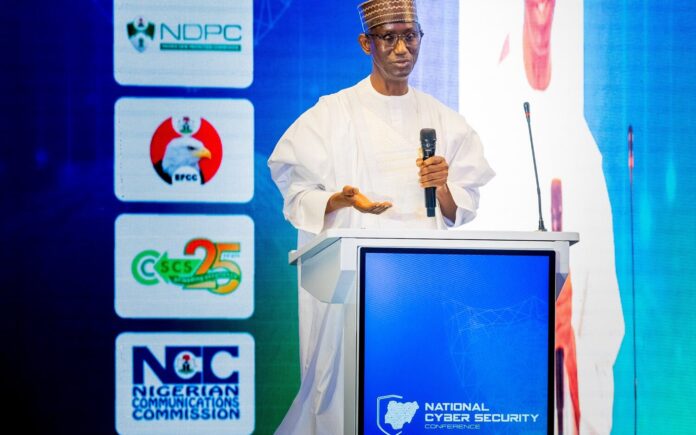Nigeria has unveiled a new push to embed cyber and digital diplomacy at the core of its foreign policy, with the government stressing that traditional statecraft is no longer sufficient in the face of fast-moving technological change.
Speaking at a high-level seminar on anticipatory, cyber, and digital diplomacy in Abuja on Tuesday, Minister of Foreign Affairs Yusuf Maitama Tuggar said Nigeria must act decisively to position itself in the evolving global digital order.
“We are living through a historic transformation. From artificial intelligence and quantum computing, to the geopolitics of data and the militarisation of cyberspace, the very nature of statecraft is being rewritten before our eyes,” Tuggar told participants.
He announced the creation of a dedicated Cyber Diplomacy Unit in the ministry, tasked with coordinating Nigeria’s cyber-related foreign policy, building capacity for international negotiations, and ensuring that Nigeria’s voice is heard in global digital governance.
Tuggar also introduced the Anticipatory, Cyber, and Digital Diplomacy Masterclass Series for diplomats from Africa and the Global South, available on YouTube as what he called “Nigeria’s digital gift to the world.”
The minister also urged stronger collaboration with the private sector, fintechs, start-ups, and the Nigerian diaspora, while stressing the inclusion of women and youth in shaping the country’s digital strategy.
“Tomorrow belongs to those who prepare for it today. The digital tomorrow is already upon us. Let us prepare for it together with courage, clarity, and unity of purpose,” he said.
Also delivering a goodwill message, Attorney General and Minister of Justice Lateef Fagbemi said the rise of a globally interconnected digital landscape had rendered traditional diplomacy “insufficient.”
He warned that cyber threats posed real dangers to national infrastructure and the rule of law, stressing that Nigeria needed a “proactive, technologically astute, and ethically grounded” legal framework.
“Anticipatory diplomacy is not just about reacting to crises, it is about developing the foresight to address potential challenges before they escalate. Our legal frameworks must deter cybercrime, enforce justice, and foster international cooperation to protect digital sovereignty,” Fagbemi said.
The Vice Chair of the African Union Cybersecurity Experts Group, Professor Nnenna Ifeanyi-Ajufo, told the seminar that power and influence in the 21st century were being forged “in data centers, digital platforms, cyber realms, and artificial intelligence capabilities.”
“Diplomacy must evolve beyond embassies, high commissions and summits. It must become anticipatory, cyber-literate, and digitally adept. Nigeria must lead, not follow,” she said.

